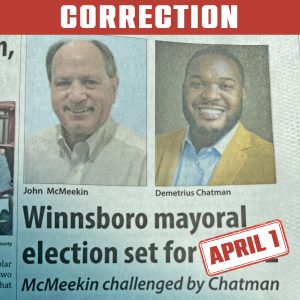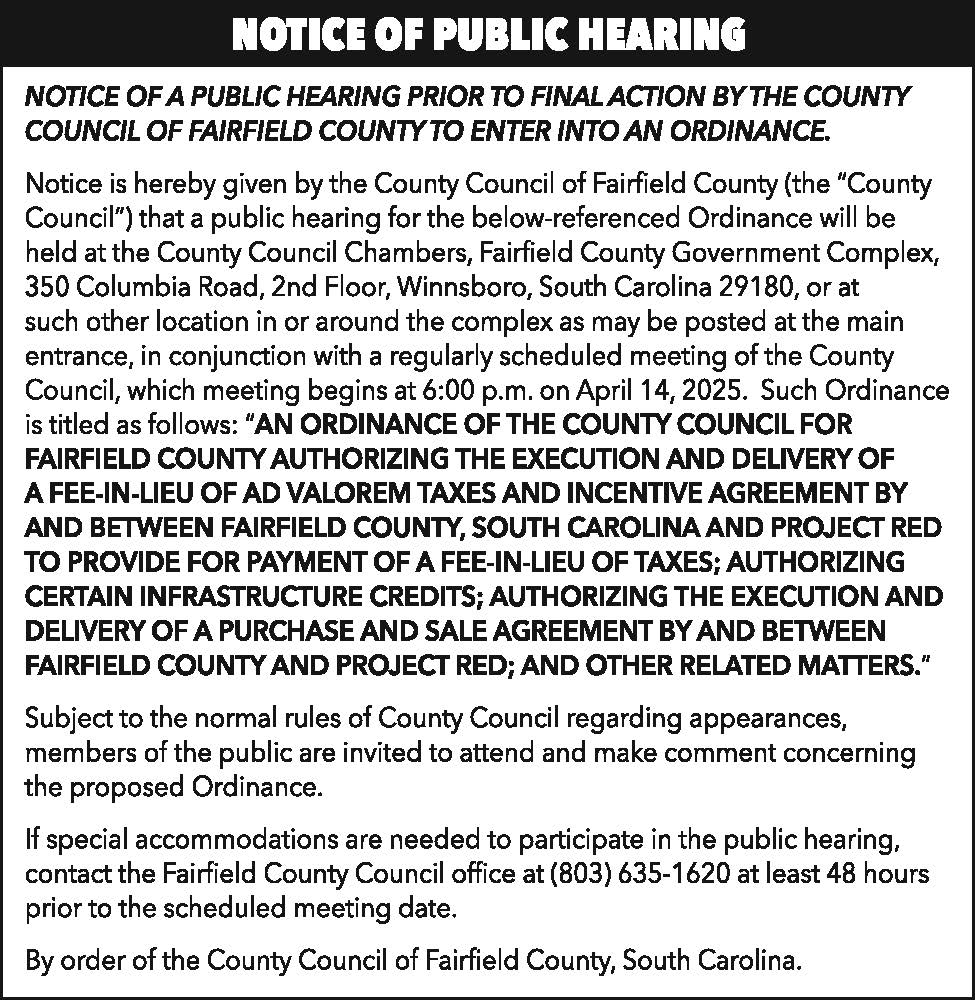The story of my great-great-uncles, Thomas and Meeks Griffin, is more than a family tragedy, it’s a sobering reminder of the irreversible failures of our justice system. These two Black brothers were executed by the state of South Carolina in 1915 for the murder of a white man they did not know and who they did not kill. They were prominent landowners, whose success and standing made them easy scapegoats in a society eager to uphold racial hierarchies.

Andy Brack’s Sept. 5, 2024 editorial in The Voice, “Lock ’Em Up and Throw Away the Key,” laid a compelling case for abolishing the death penalty. He highlighted its moral and systemic flaws, particularly the disproportionate impact on marginalized communities. This piece continues that conversation, delving into a historical example that reflects the dangers of capital punishment when racial bias and systemic failure intertwine.
The evidence against Thomas and Meeks Griffin was paper-thin, built on now-proven coerced testimony and sensationalized reporting. Despite widespread support for their innocence, including appeals for clemency from a South Carolina senator and hundreds of community members; then-S. C. Governor Richard Manning denied each of the requests. The Griffin brothers were executed via electric chair, leaving behind not only grieving loved ones but also a legacy of systemic injustice that lingers over my family to this day.
In 2009, nearly a century after their deaths, Tom Joyner successfully secured a posthumous pardon for Thomas and Meeks, who were his uncles also. It was a bittersweet victory, a symbolic gesture that acknowledged their innocence but could never return what was stolen: their lives, their dignity, and a family’s generational stability. The loss was immense; over 130 acres of farmland, an opulent family estate, and priceless heirlooms exploited to cover their legal fees, a sacrifice that left lasting economic scars.
Thomas and Meeks weren’t alone in their fate. Two other Black men, Nelson Brice and John Crosby, were executed for the same crime on that same fateful day. Their families have yet to receive the justice of acknowledgment or pardon. Their names remain shadowed by the same systemic failure, their stories untold in the larger narrative of this tragedy.
The racial disparities in capital punishment persist to this day, as Mr. Brack’s editorial aptly points out. According to the Death Penalty Information Center, Black defendants are significantly more likely to be sentenced to death, especially when the victim is white. This disparity was as evident in the early 20th century as it is today, underscoring the systemic bias fully baked into our justice system.
The ramifications of wrongful executions extend far beyond the immediate victims. The economic and emotional losses echo through generations. The land, which once symbolized independence and prosperity, became a casualty of injustice. I’m often asked, “What happened to the land?” But that question only scratches the surface of deeper wounds; the stigma, the heartbreak, and the haunting reminder of lives senselessly taken.
Mr. Brack rightly argues, the death penalty is irrevocable. A system that risks executing the innocent cannot be justified. Since 1973, nearly 190 individuals have been exonerated from death row, their innocence proven after years, sometimes decades, of suffering. How many others have not been as fortunate?
I should be clear: I’m not against the death penalty in every case. In instances where the crime is heinous, where the evidence is irrefutable, and where modern technology and forensic advancements leave no room for doubt, I believe the punishment may be warranted. But that certainty was nowhere to be found in the case of my uncles. At the time of their trial, there was no DNA testing, no sophisticated forensic analysis to bring clarity. The technology we now have, which can confirm guilt with startling precision, could have changed everything. In their case, doubt hung heavily in the air, but it was ignored, brushed aside by a system determined to condemn.
Imagine if my uncles had faced trial today, where science could have illuminated the truth. With the tools we now possess, their fate might have been sealed in an entirely different way. But in 1915, they were at the mercy of flawed testimony and a racially biased justice system. Their executions were not a matter of clear-cut guilt but of a dangerous rush to judgment. The tragic loss of their lives was a result of a system that didn’t and still doesn’t always get it right.
This isn’t just about my family. It’s about every family that has been wronged by a system that prioritizes expedience over truth. It’s about a justice system that continues to disproportionately target Black lives. And it’s about ensuring that no other family endures the irreversible pain of losing loved ones to an unforgivable act of state-sanctioned violence.
Thomas and Meeks Griffin’s story is a testament to the perils of capital punishment and a call to action. Their legacy compels us to fight for a justice system that values life, equity, and accountability over vengeance. Until we can achieve that, an atom of doubt should be more than enough to choose life.











